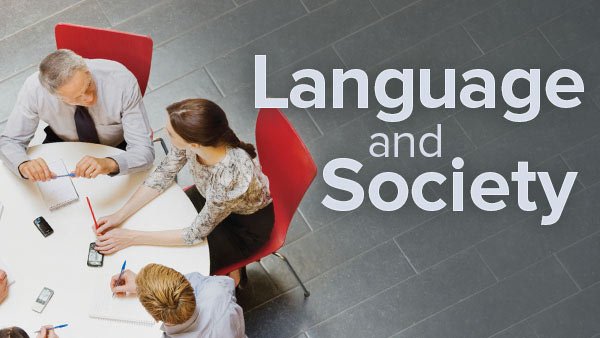Language and society are intricately intertwined with each shaping and influencing the other in profound ways at its core language is not just a tool for communication but a powerful force that reflects and constructs social realities the way we speak the words we choose and the structures we use reveal much about our identities cultural backgrounds and the societal norms we navigate daily on the other hand society plays a crucial role in shaping language as it evolves to reflect changes in social political and economic landscapes from regional dialects to global languages the variations in language usage often reflect power dynamics social hierarchies and cultural shifts.
In this dynamic relationship language becomes a mirror of societal values and in turn, a mechanism for reinforcing or challenging social structures as such studying the connection between language and society is essential for understanding how language not only mirrors reality but actively participates in the construction of social norms ideologies, and behaviors whether examining the language of politics media or everyday interactions the interplay between language and society offers valuable insights into the complexities of human communication and the forces that shape our social world.
Language as a Reflection of Society:
Language serves as a mirror to society reflecting its values norms and social structures the words we use and the way we use them are not just random selections they carry deep meanings shaped by cultural historical, and social contexts for instance the vocabulary and expressions used in different communities can reveal much about the values they hold dear whether it is the respect for hierarchy in some cultures or the emphasis on individuality in others language also mirrors societal changes what was once considered taboo may eventually become normalized and new words may emerge to describe evolving social phenomena language plays a crucial role in reinforcing social hierarchies.
In many societies, the way people speak such as their accent dialect, or choice of words can signal their social class, education level, or even political affiliation these linguistic markers can either empower or marginalize individuals based on societal expectations in this way language is not merely a tool for communication but an active participant in shaping how we perceive ourselves and others it both a reflection of the world we live in and a driving force in defining and reshaping social identities and power relations the study of language is inseparable from the study of society itself.
Language as a Shaper of Society:
Language not only reflects society but also plays a fundamental role in shaping it through the words we use and the way we communicate language helps to establish social norms influence behaviors and even determine the course of cultural and political change the language of law politics and media for example can define societal ideals and shape public perception politicians and leaders often use specific rhetoric to inspire or manipulate public opinion while the media shapes how people view themselves and the world around them through the narratives they promote language has the power to construct and reinforce identities whether individual or collective.
By labeling people’s ideas or groups in certain ways language can create divisions or build solidarity. For example, the terms used to describe gender race, and ethnicity can either perpetuate stereotypes or foster inclusion and equality language also plays a key role in socialization with children learning societal expectations and behaviors through the language they hear and use. In this sense, language becomes a tool not just for communication but for maintaining challenging, and even transforming the structures of society by influencing thought patterns and interactions language actively shapes the world in which we live, and in turn, society molds language to reflect its evolving needs and values.
Language and Education:
Language and education are deeply interconnected with language serving as both the medium and the vehicle for learning through language students gain access to knowledge develop critical thinking skills and engage with ideas that shape their understanding of the world in educational settings language is not just about vocabulary and grammar it is also about how language fosters communication expression and intellectual growth teachers use language to convey concepts, encourage discussion, and assess students comprehension while students in turn use language to articulate that their thoughts and demonstrate their learning.
The role of language extends beyond the classroom as well it influences how students connect with their cultural heritage and identity multilingualism for example, can open doors to diverse perspectives and experiences, enriching the educational experience and fostering global citizenship however, challenges can arise when students face language barriers whether due to different linguistic backgrounds or learning disabilities in such cases, language can become a barrier to education limiting access to opportunities and hindering academic success.
